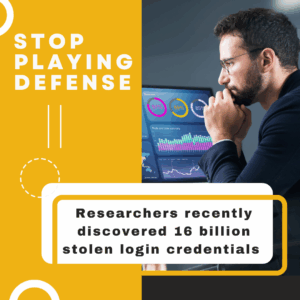 File this one away under “confirming things we already knew.” A recent study conducted jointly by Blink and Trusona confirmed that people just don’t like passwords very much.
File this one away under “confirming things we already knew.” A recent study conducted jointly by Blink and Trusona confirmed that people just don’t like passwords very much.
Their study tracked the login behavior of 148 participants over a three-week period. Without knowing the true purpose of the study, participants were asked to log into a gift idea generation website at least three times a week.
They were given the option of a “classic” (password-based) login, or an “easy” login option, which utilized alternative forms of authentication.
The results should surprise no one, but here are some of the statistics collected during the course of the experiment:
- 84 percent of participants utilized the easy login at least once
- 47 percent of participants utilized the classic login at least once
- Those who used the easy login had successful logins 78 percent of the time
- Those who used the classic login had successful logins 56 percent of the time
Per Robert Capps, a VP for NuData Security,
“This report shows that consumers are ready to move beyond passwords and usernames to more secure authentication methodologies. Using a multilayered authentication framework that combined behavioral analytics with biometrics allows companies to verify users accurately without adding unnecessary friction and detect any unauthorized activity before it enters the environment.
Multilayered solutions that include these technologies analyze hundreds of data points throughout a session and create an evolving profile of a user across the session. Passive biometrics and behavioral analytics are technologies that can provide this level of monitoring without adding friction to legitimate users, thus creating more convenient experiences for users.”
Clearly, users don’t like passwords. Unfortunately, there’s currently no technology on the market capable of the feats Mr. Capps describes. There are several promising models and products in varying stages of development, but sadly we’re still a ways off from realizing a password-free, hyper-secure login paradigm. That day is no doubt coming though, and not a moment too soon.




